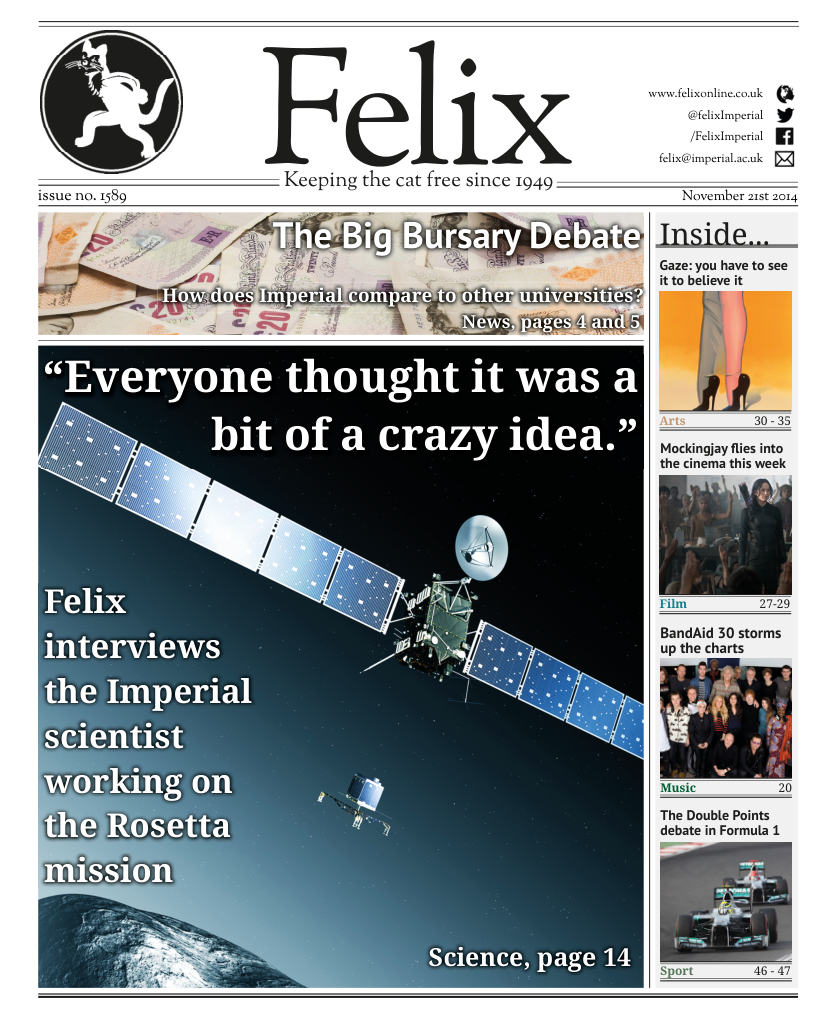Notes from the Underground
Darije Custovic reviews Dostoyevsky’s first existentialist novel

“I am a sick man... I am an angry man. I am an unattractive man.”
This is the opening line of Dostoyevsky’s early work Notes From the Underground. They are the words of the unnamed narrator, the fictive author of the titular notes written from “underground” – his term for his own self-imposed isolation. Every word that follows after this acts to reinforce these first statements; they reveal the nature of his sickness, bring out the bitterness in his rage, and expose his impotent, mean, and above all, ugly spirit. This is not easy reading – but it is potent, for Dostoyevsky’s purpose is not simply to invent a horrible character, a caricature. He wants more; he wants to show us something real: a dark and dirty corner of the human spirit that, frankly, we may not want to look at. The realism that Dostoyevsky creates captivates the reader; he understands what it is to inhabit this part of the human spirit, and he shows us the worldview, thought processes, and feelings that come with its habitation. It’s tragic... it’s repulsive. But, we are shown, it is there.
The book itself is set out in two parts. The first is essentially a long monologue where the narrator, the man from the underground, expounds his outlook on life and tries to illuminate the causes of and reasoning behind it. And what an outlook! Straight away we are hit by the twisted mass of paradox and contradiction that he carries in himself:;he is ill, he doesn’t know what it is; he respects doctors, but he proclaims his respect for medicine to be superstitious; he won’t visit a doctor, to be spiteful: spiteful against whom? Who knows? He doesn’t. He knows he will achieve nothing through inaction. This compulsively contradictory nature, always pulling the narrator’s mind hard in two directions, manifests itself again and again, and becomes a relentless tug-of-war on the reader’s own mind and sympathies: on the one hand, the narrator’s breathtaking arrogance about his own intellectual and aesthetic capacities, and on the other, declarations that “all intellectual activity is a disease”; strident statements about his firmest convictions, which end in thin jokes about how he doesn’t believe a word he’s said; his disturbing pride at explaining the “finessed” and masochistic pleasure he gets from being “too clearly aware of [his] own degradation”.
Yet, for all the confusion this play of point and counterpoint creates, we also see passages of startling lucidity, where the narrator lays down systematic, reasoned arguments, apologies for his strange beliefs and his behaviour – though, of course, the conclusions reached are questionable, at best. But this clarity, too, Dostoyevsky folds into a paradox, as we see not only contradictory thoughts existing side-by-side, but contradictory thought processes, the narrator veering from his lucidity down paths of thought where there are only outpourings of nonsense and emptiness. And then, to pull us further into contradiction, we find that the narrator is supremely aware of his psychology, and of his own deformity; he is not simply stupid. All this drags us into the morass of the man from the underground’s thinking, and very effectively so; if I have a criticism of the book, it is that this aspect of the narrator’s character is, in a sense, too effectively portrayed – it gets tiring quickly, and infuriates easily, though I suspect this is exactly how such a character would be in reality. Something stopped me from putting the book down, however – despite the extremity of the narrator’s contradictions, and their ability to infuriate, the reader cannot help but see something reflected back at them; we see in these contradictions our ability to assert our will, and our sometime desires to be different, to not do what we’re supposed to do, and to push against the boundaries we feel around us. This juxtaposition – of the narrator’s extremes and our repugnance at them, against our recognition that we possess some of those same elements – plays throughout the first part of the book: not just in the narrator’s contradictions, but in his laziness, his anger, his neediness, and his doubts.
The second part of the book is more straightforward, being a collection of stories drawn from the narrator’s life, each illustrating how his personality and worldview, laid out in such detail in the first part, play out in a variety of situations – in bars and restaurants, placed opposite officers, acquaintances, and whores. The second part is an easier read, being both simpler to follow and livelier in pace; it is entertaining and, at times, funny. But all of this is still underpinned by a distinctly sombre tone, which comes to the fore when our narrator encounters the prostitute Liza. Here, in the scenes involving her, Dostoyevsky takes us deep into the psyche of the underground man – to the sad, limp, ineffectuality at his core. Once we have seen his essence, Dostoyevsky lets us go: in a poignant scene, during the narrator’s second and final encounter with Liza, she leaves, and takes us, the reader, with her; we can finally leave the man from the underground – so contradictory, infuriating and disturbing – behind. And him? He is left “decaying morally in a corner” in the same place we found him.
Notes from the Underground by Fyodor Dostoyevsky is available from Penguin Classics for £8.99.







